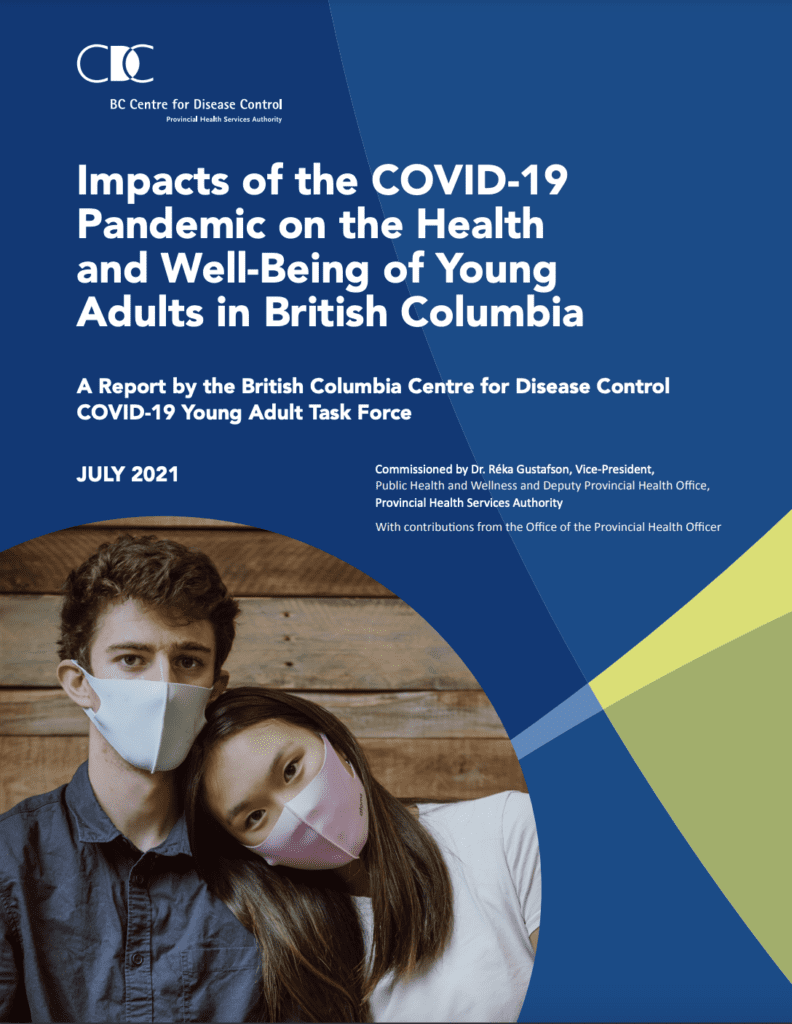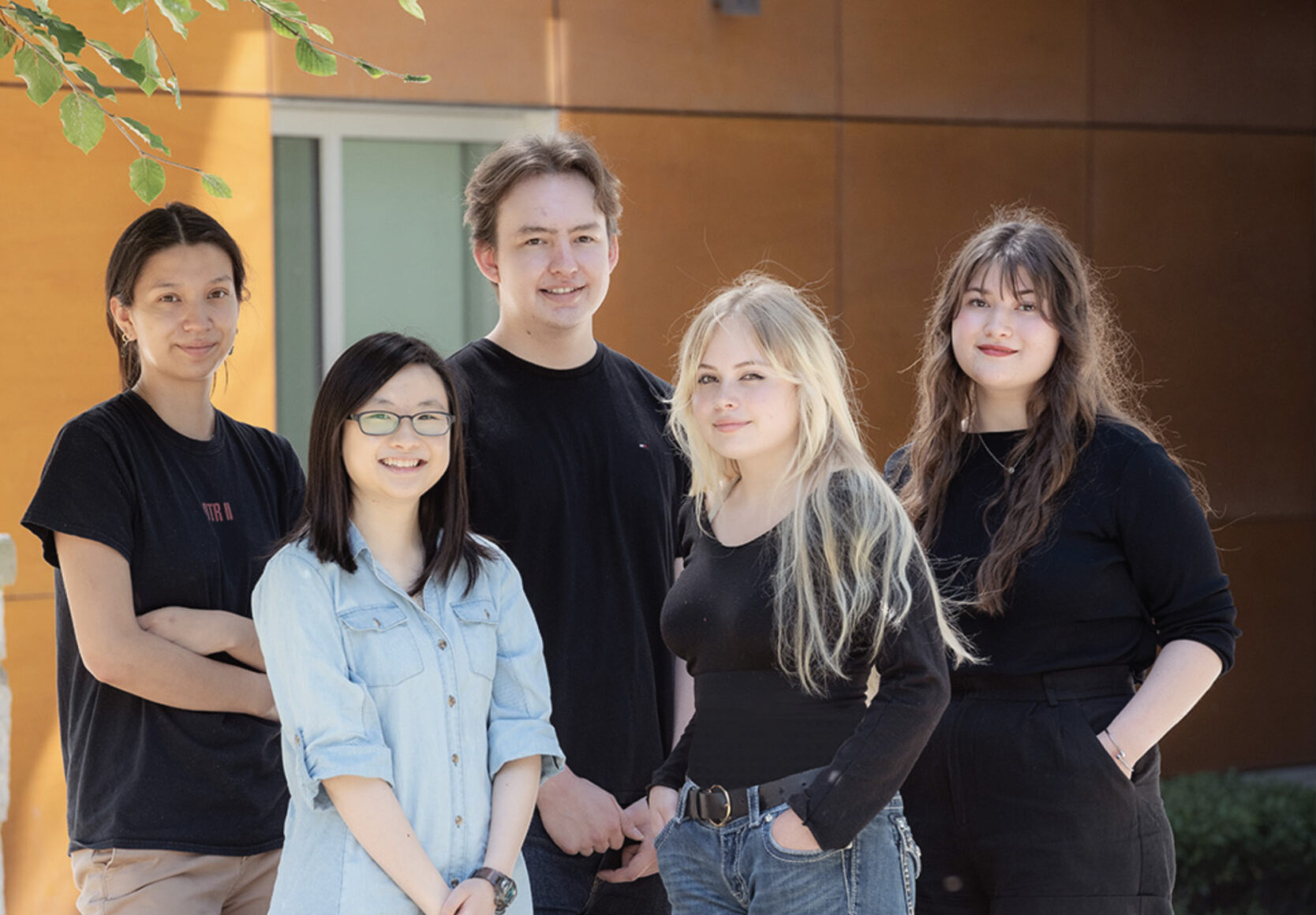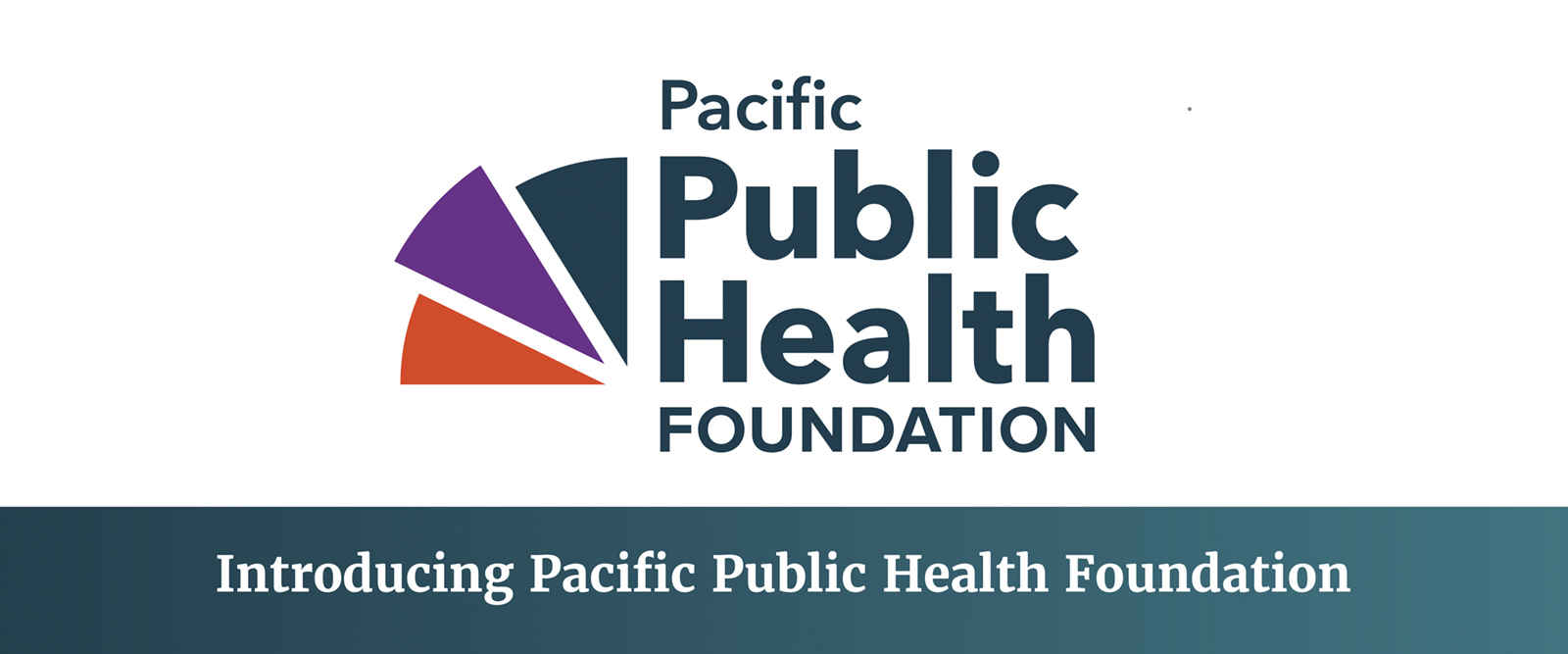In 2020, young adults aged 18-30 years old represented 17% of the population of British Columbia.
Yet, this group has been disproportionately impacted by the COVID-19 pandemic—risk of exposure is increased due to frontline work in healthcare, grocery stores, restaurants, recreation, and retail stores, and as of April 2021, young adults represent 31% of BC individuals infected during the pandemic.
In addition, the measures put in place to control the pandemic have had significant impacts on many areas of young adults’ lives—these consequences include, but aren’t limited to, disruptions to jobs, training, education, and health services, as well as a substantial increase in mental health concerns. There are short- and long-term consequences, but overall the adverse effects of COVID-19-related measures on the health, well-being, and social determinants of young adults can be seen across Canada.
Young adulthood is a critical phase of learning and growth. For example, this phase of life is associated with the development of skills and competencies, a sense of identity, autonomy, supportive relationships, and financial independence, and it is success in these areas that promotes the social and health determinants that set the stage for lifelong well-being, including prevention of chronic illness. This, in turn, is critical to create healthy communities, and population health.
Put another way, the health and well-being of young adults matters to us all.
In May 2020, we funded the BC COVID-19 SPEAK Survey (BC COVID-19 Survey on Population Experience, Actions, and Knowledge)—Canada’s largest population health survey at that time—in order to collect population-level data to help guide BC’s public health leaders and decision-makers.
One thing very clear from the BC SPEAK data in early 2020: differences were already becoming evident in how the pandemic was impacting certain population groups, and it was clear early on that existing inequities were being exacerbated. One key group experiencing significant unintended consequences is young adults.
And even though young adults are less likely to be hospitalized or die compared to older adults, they have been more indirectly affected by response measures. In addition, the long-term health consequences of COVID-19 for young adults are not yet known.
Drawing heavily on the BC SPEAK data, as well as quantitative and qualitative findings, including quotes from young adults in BC describing the impacts of the pandemic in their own voice, the *BCCDC COVID-19 Young Adult Task Force Report “Impacts of the COVID-19 Pandemic on the Health and Well-Being of Young Adults in British Columbia was released in July 2021.

Commissioned by Dr Réka Gustafson, Vice-President, Public Health and Wellness and Deputy Provincial Health Officer, Provincial Health Services Authority, and with contributions from the Office of the Provincial Health Officer, this evidence-based report is the first to summarize how the pandemic has impacted young adults across Canada.
The aim of this report is to inform recovery priorities to support the lifelong health and well-being of young adults and their communities across BC. The report provides tangible actions to do just that.
For example, actions must: address challenges to economic well-being and opportunities; improve mental health, well-being, and social connectedness; encourage health promoting behaviours; and promote young adults’ voices and engagement. These are just a few areas of action.
But, more data and research is also needed particularly to address gaps in the understanding of the impacts on, for example, those who experience systemic racism or those who are stigmatized due to their gender identity, and for Indigenous young adults.
“Ensuring there is a comprehensive monitoring system put in place will help to identify and address the long-term impacts of the pandemic on this young population, most importantly for those who were already disproportionately impacted before the pandemic. More research is needed to fully understand and take action on reducing inequities for racialized, Indigenous, and young people with disabilities that have been exacerbated during the pandemic.”
-Dr Hasina Samji, BC Centre for Disease Control and Simon Fraser University
We must judiciously prioritize the actions for those who were already facing inequities that have been further worsened. Societal impacts have not been distributed equitably, and for those young adults who may have already been facing difficulties with limited resources, stress, or additional barriers such as social determinants like race and disability, may exacerbate the inequities by placing extra burden on these groups. Further, the changing impact of COVID-19 due to variants of concern and potential prolonged measures to address the pandemic, may put added pressures on young people.
The report also shares the lived experience of young adults themselves who report feeling disempowered and unheard, their voices missing from pandemic dialogue and conversations about measures and impacts. Healthy policy and planning often discounts young adults because they represent a smaller proportion of voter turnout.
In total, the report contains 32 specific recommendations spread across nine key areas of action and priorities. It is imperative that we collaborate across sectors, and with diverse stakeholders, to support and undertake more research and to take action to address the unintended consequences and inequities perpetuated by the COVID-19 pandemic. We remain committed to supporting COVID-19 response and recovery in the best ways we can, through research, collaboration, awareness, investment, and addressing inequities.
“The transition to online is honestly a very lonely one, and I am sure that many students are feeling very isolated and restless with the limited amount of people they can see and things they can do. I think that moving forward society as a whole should be more mindful of everyone’s invisible struggles, and work together to build safe, understanding, and caring professional, social, and academic environments.”
-SFU student, 2020**
Bringing in more voices and lived experience of young adults will help guide the way forward.
Read the full report.
Read the summary report.
*Samji H, Dove N, Ames M, Barbic S, Sones M, Leadbeater B, for the British Columbia Centre for Disease Control COVID-19 Young Adult Task Force. 2021. Impacts of the COVID-19 Pandemic on the Health and Well-Being of Young Adults in British Columbia. British Columbia Centre for Disease Control.
**Data used in this blog are from the report, with exception of the direct quote by Dr Samji



